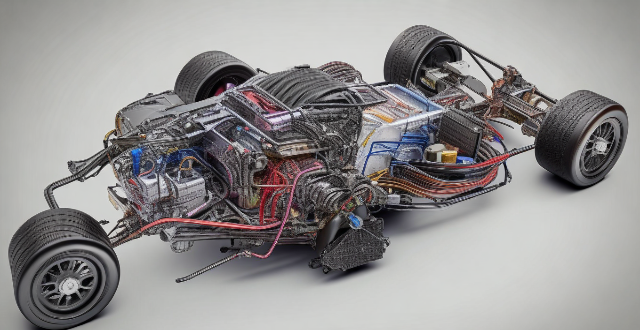Electric cars run solely on electricity and produce zero emissions, while hybrid cars combine a gasoline engine with an electric motor for improved fuel efficiency. Electric cars offer environmental benefits and lower operating costs but have limited range and long charging times. Hybrids provide a balance between gasoline-powered vehicles and electric cars, with improved fuel efficiency and no range limitations but still rely on gasoline and produce emissions. The choice between the two often depends on individual needs and preferences.

Electric Cars vs. Hybrid Cars
Electric cars and hybrid cars are two types of vehicles that are designed to reduce the reliance on traditional gasoline-powered engines. While both offer environmental benefits, there are several key differences between the two.
Electric Cars
Electric cars, also known as EVs (Electric Vehicles), run solely on electricity stored in a large battery pack. They do not have a conventional engine and do not produce any tailpipe emissions.
Pros:
- Environmentally Friendly: EVs produce zero emissions at the point of use.
- Lower Operating Costs: Electricity is generally cheaper than gasoline.
- Quiet and Smooth Ride: EVs are quieter and provide a smoother ride due to their electric motors.
- Regenerative Braking: Some energy is recaptured during braking.
Cons:
- Limited Range: Most EVs have a limited range compared to gasoline-powered vehicles.
- Long Charging Times: It can take several hours to fully charge an EV.
- Higher Upfront Cost: EVs generally cost more than comparable gasoline-powered vehicles.
Hybrid Cars
Hybrid cars combine a conventional gasoline engine with an electric motor. The electric motor is powered by a battery that is recharged through regenerative braking and by the gasoline engine.
Pros:
- Improved Fuel Efficiency: Hybrids use less gasoline and produce fewer emissions than comparable gasoline-only cars.
- No Range Anxiety: Hybrids can run for long distances on gasoline if the battery is depleted.
- Immediate Torque: Electric motors provide instant torque, which can improve acceleration.
- Regenerative Braking: Some energy is recaptured during braking.
Cons:
- Still Use Gasoline: Hybrids still rely on gasoline and produce emissions, albeit less than conventional vehicles.
- Complex Technology: More components can lead to higher maintenance costs.
- Heavier Weight: The combination of both systems can make hybrids heavier.
Comparison
When comparing electric cars and hybrid cars, the choice often depends on individual needs and preferences. Electric cars offer the most significant environmental benefits but come with limitations such as range anxiety and charging infrastructure. On the other hand, hybrid cars provide a balance between gasoline-powered vehicles and electric cars, offering improved fuel efficiency without the range limitations of EVs. However, they still rely on gasoline and produce emissions, albeit at a reduced rate compared to conventional vehicles.